Focus
Your Present Location: HOME> Focus-

India’s 5G solution ‘unlikely’ homegrown: analysts
Indian tycoon, Mukesh Ambani, chairman of Reliance Industries Ltd, announced last week that the company's digital arm Jio has developed a complete homegrown 5G solution "from scratch," the Press Trust of India reported. It is reported that the solution may be ready for field deployment next year, as soon as the 5G spectrum is available. The news has generated some interest in China, the world's leading nation in 5G technology, given India's hostile approach toward Chinese technology firms, including Huawei.
2020-07-21 -
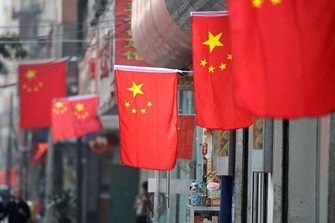
He Weiwen was interviewed by the Beijing Hour on July 17
He Weiwen, senior fellow at the Chongyang Institute for Financial Studies, Renmin University (RDCY), was interviwed by China Plus on July 17 and shared his opinions at 3:15 in the audio about two questions 1. What's your take on China's economic performance so far this year? 2. What can China do to maintain growth momentum amid the ongoing pandemic and other issues?
2020-07-20 -
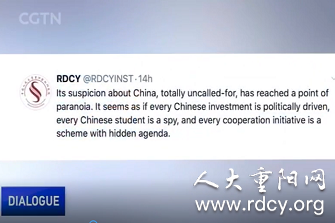
CGTN Dialogue cited RDCY Twitter on US policies toward Huawei
CGTN Dialogue cited RDCY Twitter on US policies toward Huawei on July 17. This is a transaltion from Wang Yi's Speech on July 9, Stay on the Right Track and Keep Pace with the Times to Ensure the Right Direction for China-US Relations --Remarks by State Councilor and Foreign Minister Wang Yi at China-US Think Tanks Media Forum. And the cited comment is as follows: Its suspicion about China, totally uncalled-for, has reached a point of paranoia. It seems as if every Chinese investment is politically driven, every Chinese student is a spy, and every cooperation initiative is a scheme with hidden agenda.
2020-07-20 -

Hydro projects take CPEC program into full swing: expert
The recently signed agreements in Pakistan for hydropower projects under the China-Pakistan Economic Corridor (CPEC) marked the beginning of a mature new phase for the program, which is under the China-proposed Belt and Road Initiative (BRI), experts told the Global Times on Thursday. The concessional agreement for the 700.7-MW Azad Pattan Hydropower Project was signed last week, a breakthrough for the implementation of the project, according to China Gezhouba Group, the Chinese investor in the project.
2020-07-17 -
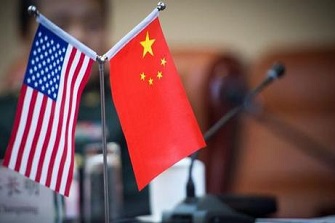
US travel ban on CPC members ‘paranoid,’ risks dragging ties to 1972
The Trump administration is reportedly considering banning members of the Communist Party of China (CPC) and their families from traveling to the US, a paranoid and McCarthyist move driven by ideological bias that will drag bilateral ties back to 1972, analysts said. The presidential proclamation, still in draft form, could authorize the US government to revoke the visas of CPC members and their families who are already in the country, leading to their expulsion, The New York Times reported on Wednesday. Members of the People's Liberation Army and executives at state-owned enterprises may also face travel restrictions to the US.
2020-07-17 -
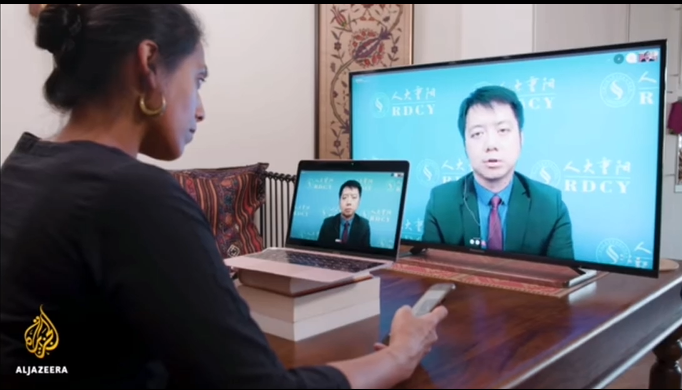
【AI Jazeera English】Wang Wen: Power, politics and the pandemic—The Sion-American media divide
COVID-19 has the world's two most powerful countries, the United States and China, staring each other down. So far, it has, for the most part, been a war of words and soundbites - a blame game over the origins of the pandemic and each side's response to it, with the news media serving as the primary battleground. The Chinese and American media industries are ideological opposites - one operating under the watch of Communist Party censors, the other under a capitalist free market dominated by a handful of conglomerates. News outlets in both countries have, however, found their own ways to bolster the talking points of their respective governments.
2020-07-16 -
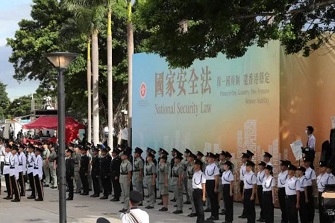
He Weiwen: Will Sanctions on HK Work?
Both the United States House of Representatives and Senate were unusually efficient in passing the Hong Kong Autonomy Act on July 2, just 48 hours after a bill was adopted by Chinese lawmakers to bring order to Hong Kong with respect to national security. The Chinese law, whose passage was followed immediately by an announcement of sanctions by the U.S. Anxious expressions of concern over the so-called loss of autonomy in Hong Kong were made by the United Kingdom and some other governments and politicians in the West.
2020-07-16 -
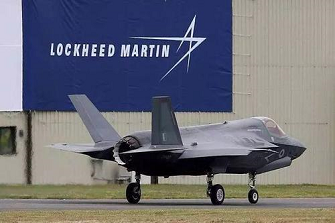
Lockheed Martin faces China's sanctions over Taiwan deal
China will impose sanctions on US-based arms producer Lockheed Martin, the main contractor of the recertification of its Patriot Advanced Capability-3 (PAC-3) air defense missiles of the island of Taiwan. The sanctions will likely feature the cut-off of material supply including rare earths, which are crucial to advanced weapons production, and business restrictions on Lockheed Martin's suppliers that have business in the Chinese mainland, Chinese aviation industry experts said on Tuesday.
2020-07-16 -
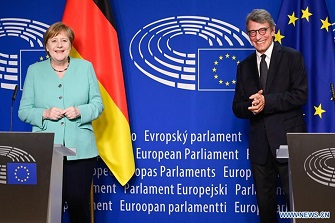
EU’s China measures only ‘symbolic’
In what seemed more like a move to "walk through pressure from the US and the UK," the EU announced on Monday it would take countermeasures against China over the new national security law for Hong Kong. Observers believe members of the bloc, divergent in views and interests, would find it hard to reach consensus in practice. Even if implemented, those measures would only be symbolic, with no significant harm to Beijing.
2020-07-15 -
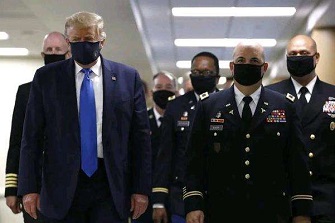
US faces renewed uncertainty as resurgence of coronavirus hampers recovery for companies, individuals
The US reported a one-day total of more than 60,000 new confirmed COVID-19 cases for four consecutive days as of Sunday. In total, 3,304,942 people had tested positive for COVID-19 in the US as of press time, according to data compiled by Johns Hopkins University. Facing the virus resurgence, a growing number of US cities are pausing plans to reopen, such as Los Angeles, and eight states, including Texas and California, are again re-imposing restrictions. So far, 17 US states have totally reopened.
2020-07-14 -

Wang Wen: China instills certainty into a chaotic world
Chinese State Councilor and Foreign Minister Wang Yi delivered a speech to the China-US Think Tanks Media Forum on Thursday. As one of the organizers of the event, I attended the forum and was impressed by the huge amount of information he made in his remarks. Regrettably, US media outlets failed to adequately report about this most systematic explanation of China's US policy by Chinese policymakers since the deterioration of Beijing-Washington relations. I would therefore like to share my understanding of the speech to the English-speaking world through this column.
2020-07-14 -
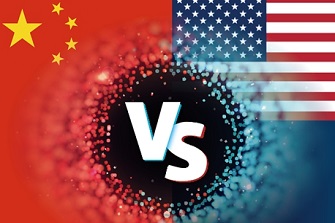
Beijing announces targeted countermeasures against anti-China US hawks
As Washington has now descended into a "morbid and bottomless" struggle to contain a rising China, Chinese observers noted that the targeted sanctions China announced signals Beijing is fully prepared for the further floundering of China-US ties; and although China hopes for the best that bilateral ties will evolve, China is still preparing for the worst to come.
2020-07-14 -
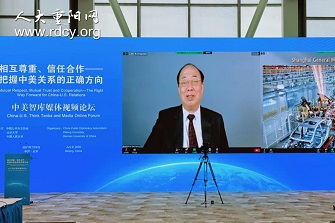
Zhao Qizheng: How can China and the U.S. avoid the Thucydides Trap?
On July 9, the China Public Diplomacy Association, China's Pekin University and Renmin University co-hosted a high-level video forum titled “Mutual respect, trust and cooperation – where China-U.S. relations should be heading.” Senior policymakers from both China and the U.S., both incumbent and those from the past, including China's State Councilor and Foreign minister Wang Yi and former Prime Minister of Australia Kevin Rudd, attended the event. The following is the English translation of the keynote speech delivered by Zhao Qizheng, former director of the State Council Information Office, at the event. Chongyang Institute for Financial Studies, Renmin University of China (RDCY) is one of the main organizers of this forum.
2020-07-13 -
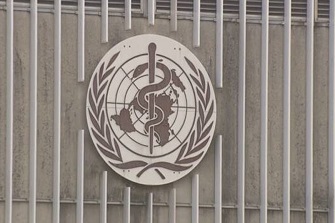
Zhang Mengchen: Withdrawal from WHO bad for US, global public health
Since the COVID-19 pandemic broke out, the US president has been trying to shift the responsibility for his administration's failure to contain the outbreak at home by blaming the WHO(and China, in good measure) for the spread of the public health crisis. That the WHO has faced threats and criticisms from the White House shows that the US' unilateral approach is not restricted to trade and political matters; it extends to health and other public welfare fields too.
2020-07-13 -
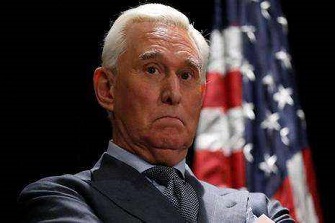
William Jones: Reprieve of Roger Stone and abuse of American justice system
The U.S. media and the liberal establishment have gone bonkers over the commutation by President Trump of the jail sentence handed out by the Federal court to Trump's former adviser Roger Stone, calling it a subversion of the American justice system. It was in fact an attempt to at least partially reassert even-handed justice in a case that was mishandled from the beginning. As the political establishment was wholly intent on preventing newly-elected President Trump from governing on his program of creating new and cooperative relations with China and Russia, the "Russiagate" hoax was initiated in an attempt to bring him down before he succeeded in his desires.
2020-07-13 -
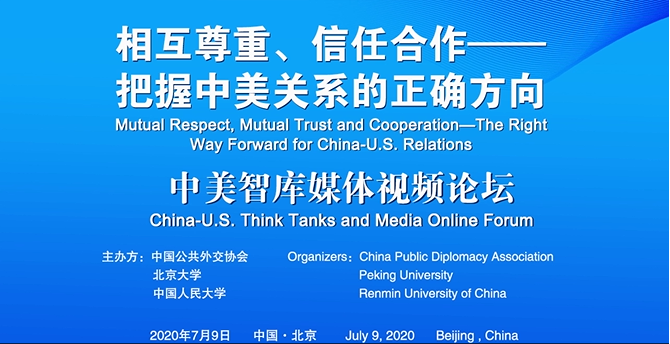
Wang Yi's Ten Golden Words about China-US Relations
On July 9th 2020, the State Councilor and Foreign Minister Wang Yi attended "Mutual Respect, Mutual Trust and Cooperation —— The Right Way Forward for China-U.S. Relations" China-US Think Tanks Media Forum and delivered the keynote speech. Chongyang Institute for Financial Studies, Renmin University of China (RDCY) is one of the main organizers of this forum, and recommend Wang Yi's ten golden words about China-US relations firstly.
2020-07-11 -
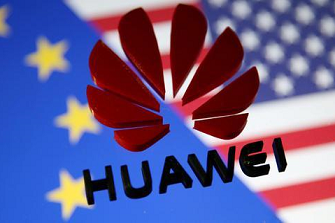
Wang Yiwei: Independent view of Huawei crucial for European interests
The US, under the guise of national security concerns, has been relentlessly cracking down on Huawei and has placed enormous pressure on its European allies to stay away from the leading 5G tech firm. It is attempting to buy time to catch up in the 5G race, at the cost of its allies' interests. However, a balanced strategy and cooperation are now crucial for the EU to recover from the pandemic and gain an advantage in the digital revolution era.
2020-07-10 -
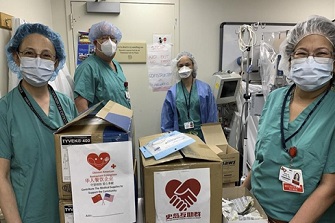
China-US pandemic assistance persists despite rational voices receding
Key advocates are calling for greater partnering between China and the US in the fight against coronavirus even as rational voices are being marginalized and undervalued especially during the COVID-19 outbreak in the US, where some politicians have politicized the virus by tossing wild accusations against China. While many people in the US and China have forged close relationships, they constantly face challenges from US political hawks whose China-bashing rhetoric intimidates progressives and stunts local cooperation and support.
2020-07-10 -
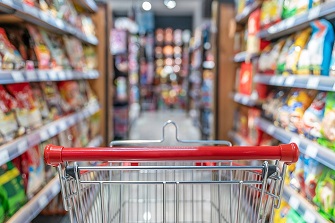
China's CPI up 2.5% in June, due to rising pork, vegetable prices
China's consumer price index (CPI), a main gauge of inflation, rose by 2.5 percent year on year in June, expanding 0.1 percentage points than May due to increasing prices of pork and vegetables. According to the National Bureau of Statistics (NBS), pork prices increased by 3.6 percent, reverted from a decline of 8.1 percent last month, affected by the tighter supply of pork due to factors such as the slower slaughter of live pigs and stricter requirements for epidemic prevention deployment and reduced imports.
2020-07-10 -
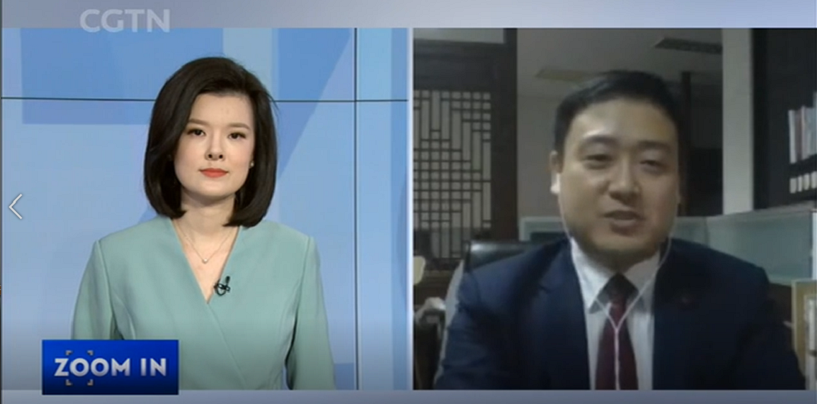
【CGTN】Wang Peng interviewed by CGTN On China-India Dispute
On July 5th, CGTN gave an exclusive interview with Wang Peng, associate research fellow at the Chongyang Institute for Financial Studies at Renmin University of China(RDCY), on China-India dispute. India bans 59 apps owned by China, and the authorities say Chinses apps endanger national security. But many Indians make a living from TikTok.
2020-07-10
























































































 京公网安备 11010802037854号
京公网安备 11010802037854号





